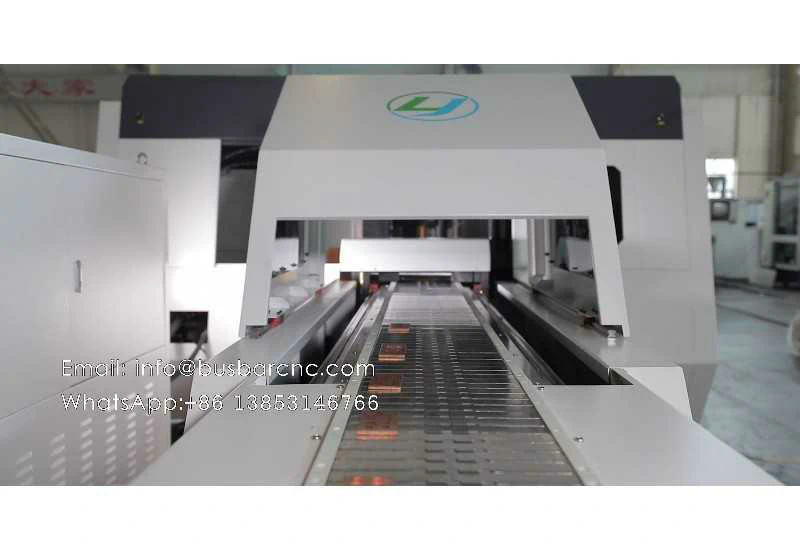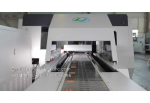In the realm of electrical power distribution, busbars play a crucial role in transferring electricity from the source to various components within a system. As such, optimizing busbar fabrication processes is essential for ensuring efficient and reliable performance. With the advancements in technology and the availability of state-of-the-art machinery, manufacturers can now achieve higher levels of precision, speed, and quality in busbar production.
The Importance of Optimizing Busbar Fabrication
Efficient busbar fabrication is vital for meeting the increasing demands of modern electrical systems. By optimizing the fabrication process, manufacturers can reduce waste, minimize errors, and enhance the overall performance of the busbars. Additionally, optimized fabrication leads to cost savings, improved productivity, and increased competitiveness in the market.
Enhancing Precision with Advanced Machinery
One of the key benefits of using state-of-the-art machinery in busbar fabrication is the ability to achieve unparalleled levels of precision. Modern CNC machines equipped with advanced software can accurately cut, bend, and shape busbars according to exact specifications. This level of precision ensures that the busbars fit perfectly within the system, leading to optimal electrical conductivity and busbar machine minimal energy loss.
Increasing Speed and Efficiency
Another advantage of utilizing advanced machinery in busbar fabrication is the significant increase in speed and efficiency. Automated processes powered by cutting-edge technology can streamline production workflows, reduce manual labor, and accelerate the manufacturing cycle. This not only allows manufacturers to meet tight deadlines but also boosts overall productivity and output.
Improving Quality and Consistency
State-of-the-art machinery enables manufacturers to produce busbars with superior quality and consistency. Automated systems ensure that each busbar is fabricated to the same high standards, eliminating variations and defects that can compromise performance. By maintaining strict quality control measures throughout the fabrication process, manufacturers can deliver reliable and durable busbars to their customers.
Minimizing Material Waste
Optimizing busbar fabrication with advanced machinery helps minimize material waste, which is not only environmentally responsible but also cost-effective. Precision cutting and bending technologies ensure that materials are used efficiently, reducing scrap and enhancing resource utilization. This sustainable approach to fabrication aligns with the principles of green manufacturing and contributes to a more sustainable future.
Enhancing Flexibility and Customization
State-of-the-art machinery offers greater flexibility and customization options in busbar fabrication. Manufacturers can easily create complex shapes, patterns, and configurations to meet the specific requirements of different applications. Whether it’s a custom design for a unique project or a standard layout for mass production, advanced machinery can accommodate a wide range of customization needs.
Ensuring Safety and Reliability
Optimizing busbar fabrication with state-of-the-art machinery is not just about efficiency and quality—it also contributes to safety and reliability. Precision manufacturing processes result in busbars that are free from defects, weak points, or irregularities that could pose safety hazards or lead to system failures. By prioritizing safety and reliability in fabrication, manufacturers can instill confidence in their products and build trust with customers.
Embracing Industry 4.0 Technologies
The integration of Industry 4.0 technologies, such as IoT connectivity, data analytics, and automation, further enhances busbar fabrication processes. Smart manufacturing systems enable real-time monitoring of production parameters, predictive maintenance of machinery, and continuous optimization of workflows. By embracing these advanced technologies, manufacturers can stay ahead of the curve and remain competitive in a rapidly evolving industry landscape.
Investing in Training and Skills Development
While state-of-the-art machinery plays a crucial role in optimizing busbar fabrication, investing in training and skills development is equally important. By providing employees with the necessary knowledge and expertise to operate and maintain advanced equipment, manufacturers can maximize the benefits of automation and technology. Continuous training ensures that the workforce remains competent, adaptable, and capable of leveraging the full potential of modern fabrication tools.
Conclusion
In conclusion, optimizing busbar fabrication with state-of-the-art machinery offers a myriad of benefits for manufacturers seeking to enhance their production capabilities. From precision and speed to quality and customization, advanced technologies enable manufacturers to elevate the efficiency, reliability, and competitiveness of their busbar fabrication processes. By embracing innovation, investing in skills development, and prioritizing quality, manufacturers can position themselves at the forefront of the industry and deliver superior busbars that meet the evolving needs of modern electrical systems.

https://ortumeta.com/
